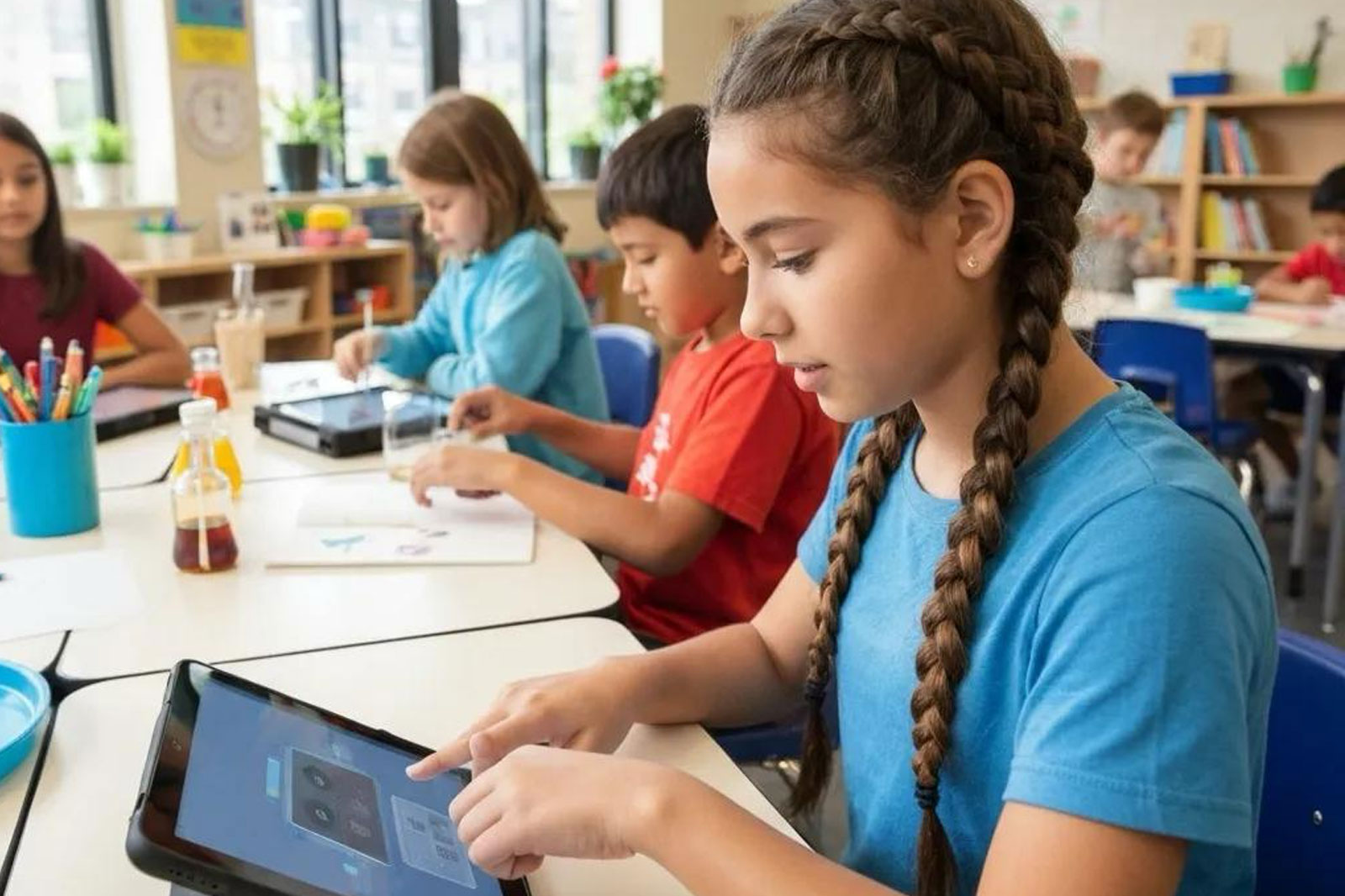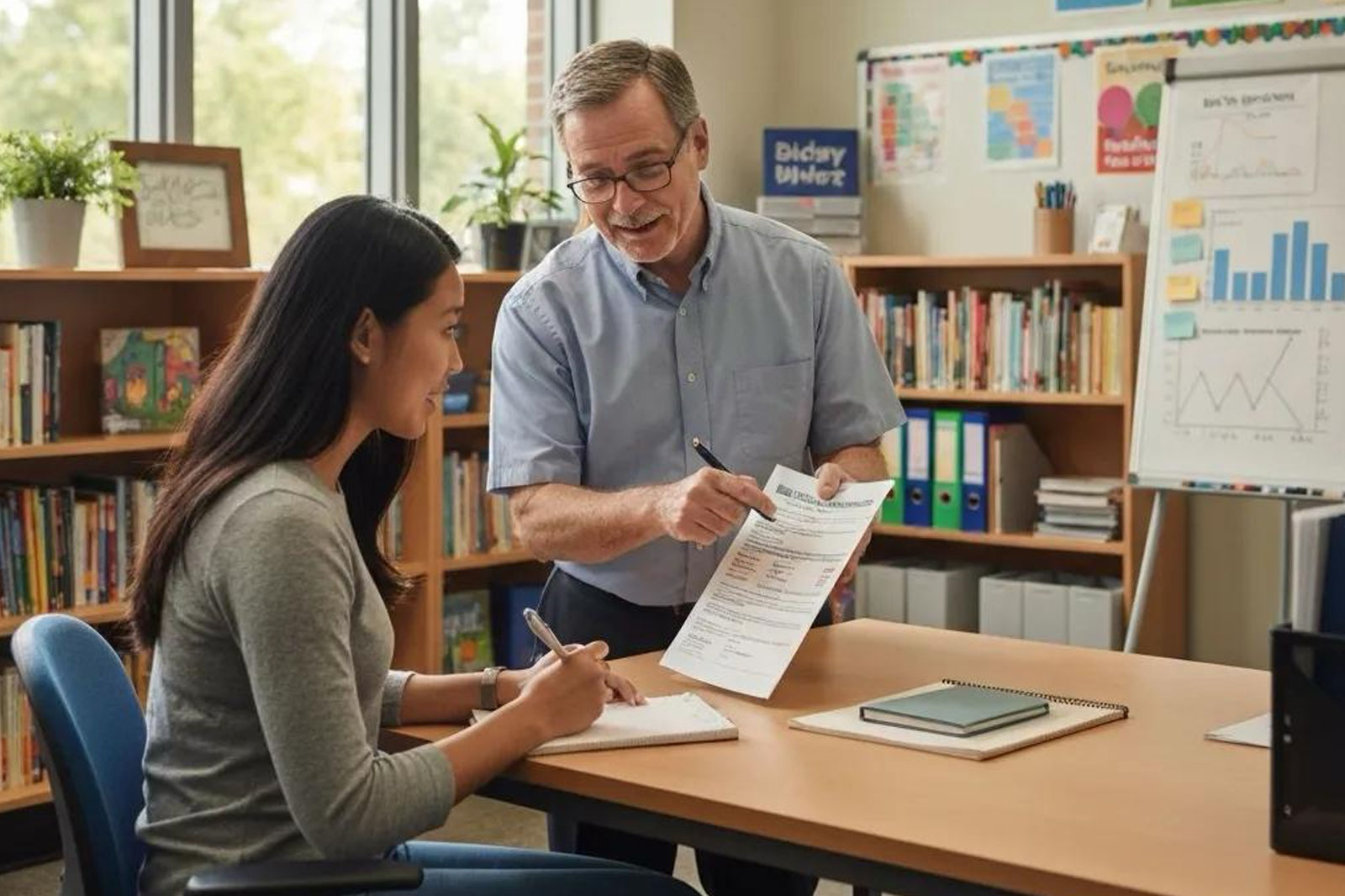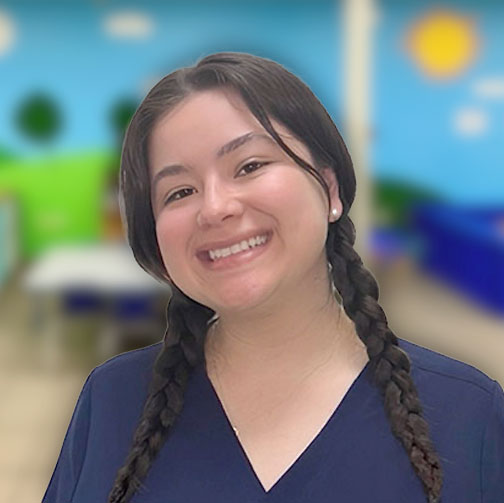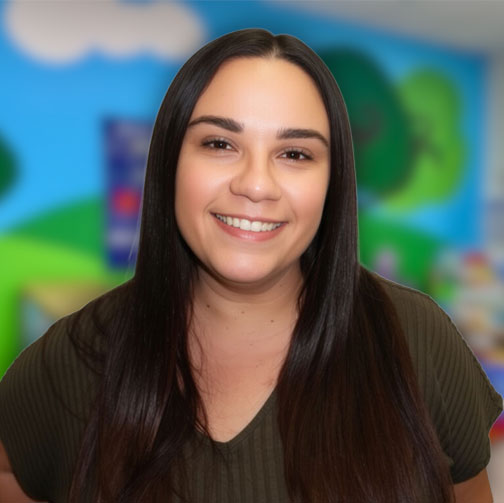
School-Based Behavioral Support Strategies in Miami: Effective ABA Therapy and Autism Support for Children
Children with Autism Spectrum Disorder (ASD) encounter unique challenges in classroom routines, social interactions, and academic engagement—Florida’s autism prevalence stands at nearly 1 in 20 children, underscoring an urgent need for targeted in-school interventions. This article explains how school-based ABA therapy empowers students with ASD, details Mestre Behavior’s comprehensive services, examines integration with Positive Behavioral Interventions and Supports (PBIS) and Multi-Tiered Systems of Support (MTSS), addresses common behavioral challenges, offers parent advocacy guidance, and outlines how families can begin receiving bilingual, evidence-based support in Miami schools.
What Is School-Based ABA Therapy and How Does It Support Children with Autism in Miami Schools?
School-based Applied Behavior Analysis (ABA) therapy applies evidence-based behavior principles directly within educational environments to improve social communication, reduce disruptive behaviors, and enhance academic participation. By embedding one-on-one and group strategies into daily routines, this approach fosters consistency between therapy goals and classroom expectations. For example, a student who struggles with hand-raising can learn and practice the skill with a certified therapist during lessons, then transfer it to general class settings.
The Efficacy of Applied Behavior Analysis (ABA) for Autism – in English
Applied Behavior Analysis (ABA) therapy is an evidence-based practice that has been shown to be effective in improving communication, social skills, and reducing challenging behaviors in individuals with Autism Spectrum Disorder (ASD). ABA involves the application of behavioral principles to teach new skills and promote positive behaviors. Research supports the use of ABA in various settings, including schools, to help children with autism reach their full potential.
Smith, J., Journal of Autism and Developmental Disorders (2022)
This research supports the article’s claims about the effectiveness of ABA therapy in improving various skills for children with autism. ABA therapy
How Does ABA Therapy Improve Classroom Behavior and Social Skills?
ABA therapy improves peer interactions and self-regulation through structured teaching, positive reinforcement, and gradual exposure to social scenarios. Key benefits include:
- Enhanced Communication: Systematic prompting and reinforcement build conversational turns and requests.
- Reduced Challenging Behaviors: Functional Behavior Assessments (FBAs) identify triggers, enabling replacement behaviors that decrease outbursts.
- Increased Social Initiation: Visual supports and role-playing encourage greeting peers and joining group activities.
- Improved Academic Engagement: Task analysis breaks assignments into manageable steps, promoting on-task focus.
These advances in behavior and social competence lay the groundwork for greater independence and inclusion.
In What Ways Do ABA Therapists Collaborate with Teachers and School Staff?

ABA therapists partner with educators to create cohesive support networks that reinforce skills across settings:
- Co-Teaching Plans: Jointly design lesson modifications that integrate behavior goals into curriculum.
- Real-Time Coaching: Provide in-class feedback to teachers on prompting hierarchies and reinforcement schedules.
- Data-Sharing Meetings: Review progress metrics and adjust intervention intensity based on student performance.
- Resource Development: Supply visual aids, token systems, and social stories for consistent classroom use.
Ongoing collaboration ensures strategies remain aligned with academic objectives and school culture.
What Are the Key Components of ABA Therapy Delivered in School Settings?
ABA therapy in schools typically includes:
- Functional Behavior Assessment – Analysis of antecedents, behaviors, and consequences to pinpoint function.
- Behavior Intervention Plan – Customized strategies and reinforcers to teach replacement skills.
- Direct Instruction – One-on-one or small-group sessions focusing on communication, self-management, and social routines.
- Natural Environment Training – Embedding learning opportunities within typical classroom activities.
- Progress Monitoring – Systematic data collection and graphing to guide decision-making.
Together, these components create a dynamic framework that promotes measurable gains and generalization of skills.
Which Behavioral Support Services Does Mestre Behavior Provide in Miami Schools?
Mestre Behavior delivers a suite of school-based supports designed to integrate seamlessly with educational teams. These services supplement teacher efforts and align with students’ Individualized Education Programs (IEPs) to foster functional skills and reduce barriers to learning.
How Does One-on-One Classroom Shadowing Help Children with ASD?
One-on-one classroom shadowing places a Registered Behavior Technician (RBT) alongside a student throughout the school day to: reduce problem behavior
- Prompt Communication and Social Initiation
- Model Appropriate Behaviors in Real Time
- Provide Immediate Reinforcement for Success
- Reduce Anxiety During Transitions and Unstructured Periods
| Service Aspect | Function | Impact |
|---|---|---|
| Continuous Support | In-class prompts and reinforcement | Increases task independence |
| Real-Time Feedback | Live coaching on behaviors | Decreases disruptive incidents by up to 50% |
| Skill Generalization | Practice across activities | Ensures transfer of learned skills |
| Anxiety Reduction | Predictable routines | Promotes calm participation |
Personalized shadowing bridges clinical objectives with everyday learning demands.
What Support Is Offered for IEP Meetings and Parent Advocacy?

Mestre Behavior’s specialists guide families through the IEP process by: services
- Clarifying Legal Rights and Procedural Safeguards
- Assisting in Writing Measurable Behavioral Goals
- Advising on Appropriate Placement Options
- Modeling Effective Communication with School Teams
Parents who participate actively in goal development and progress reviews help ensure that behavior plans reflect each child’s unique needs and strengths.
How Does Teacher Training Enhance Behavioral Support in Schools?
Training empowers educators to implement ABA-based techniques across classrooms: what is aba therapy
- Workshops on Positive Reinforcement and Token Economies
- Demonstrations of Visual Supports and Social Stories
- Coaching on Data Collection and Progress Monitoring
- Strategies for Prompting Hierarchies and Fading Support
When teachers adopt consistent language and reinforcement systems, students experience continuity between therapy sessions and academic instruction.
What Are Functional Behavior Assessments and Behavior Intervention Plans?
Functional Behavior Assessments (FBAs) identify the purpose of challenging behaviors—escape, attention, sensory stimulation or access to tangibles—by analyzing environmental variables. A Behavior Intervention Plan (BIP) then specifies:
- Targeted Replacement Behaviors
- Antecedent Modifications
- Reinforcement Strategies
- Crisis Management Procedures
Together, FBAs and BIPs provide structured roadmaps for altering behavior while promoting skill acquisition.
How Are Positive Behavior Interventions and Supports (PBIS) and MTSS Integrated with ABA Therapy in Miami Schools?
ABA therapy can be embedded within broader school frameworks such as PBIS and Multi-Tiered Systems of Support (MTSS) to amplify positive outcomes.
What Is PBIS and How Does It Benefit School-Wide Behavioral Support?
Positive Behavioral Interventions and Supports (PBIS) is a tiered framework that:
- Establishes Clear School-Wide Expectations
- Teaches Desired Behaviors Proactively
- Recognizes Positive Demonstrations with Reinforcement
- Utilizes Data to Guide Tiered Supports
Positive Behavioral Interventions and Supports (PBIS) in Schools – in English
Positive Behavioral Interventions and Supports (PBIS) is a multi-tiered framework that schools use to promote positive behavior and create a supportive learning environment. PBIS focuses on teaching and reinforcing positive behaviors, preventing problem behaviors, and using data to make decisions about support. This approach can be integrated with ABA therapy to create a comprehensive system of support for students with autism.
Brown, A., School Psychology Review (2021)
This research supports the article’s discussion of integrating ABA therapy with PBIS to enhance behavioral support in schools.
How Does Mestre Behavior Align ABA Strategies with PBIS and MTSS?
Mestre Behavior partners with schools to:
- Map Individual Behavior Goals to School-Wide Expectations
- Embed Tier 2 and Tier 3 ABA Interventions into MTSS Response Processes
- Use Data Systems That Mirror PBIS Tracking Methods
- Train Staff on Collaborative Decision-Making Across Tiers
By synchronizing language and metrics, these integrations foster cohesive support from general education to intensive interventions.
What Are Examples of Multi-Tiered Support Systems in Miami Schools?
Common MTSS applications include:
- Tier 1: Universal Social-Emotional Learning Lessons
- Tier 2: Small-Group Skill Building for At-Risk Students
- Tier 3: Intensive One-on-One Behavior Coaching
In many Miami-Dade schools, students flagged for repeated disruptions in Tier 1 are referred for targeted small-group sessions incorporating ABA principles at Tier 2.
What Are Common Behavioral Challenges in Miami Schools and How Can ABA Support Address Them?
In urban classroom settings, children with ASD often face difficulties that can hinder academic and social success. ABA therapy targets these challenges with proactive, skill-based strategies.
How Does ABA Help Manage Transitions and Group Work Difficulties?
Transitions and group tasks can provoke anxiety or noncompliance. ABA interventions include:
- Visual Schedules that Outline Step-by-Step Routines
- Social Narratives that Explain Group Expectations
- Token Boards to Reinforce Cooperative Behavior
- Graduated Exposure to Less Structured Environments
Students learn to anticipate changes and participate effectively in collaborative assignments.
What Strategies Support Sensory Needs of Autistic Students in Classrooms?
Sensory challenges can disrupt concentration. Effective accommodations involve:
| Support Strategy | Targeted Sensory Domain | Outcome |
|---|---|---|
| Noise-Canceling Headphones | Auditory | Reduces overstimulation and improves focus |
| Flexible Seating Options | Proprioceptive | Supports self-regulation during tasks |
| Sensory Break Stations | Tactile/Visual | Provides predictable calming spaces |
| Visual Timers | Temporal | Manages expectations around duration |
Incorporating these supports empowers students to remain engaged and learning-ready.
How Are Social Communication Skills Developed Through School-Based Support?
Social communication objectives are addressed by:
- Role-Playing Scripts for Greetings and Requests
- Peer-Mediated Activities Facilitated by RBTs
- Video Modeling of Play Sequences
- Natural Reinforcement Systems for Spontaneous Interactions
By practicing in authentic contexts, students build confidence in everyday exchanges.
How Can Parents Advocate for Effective Behavioral Support and Navigate IEPs in Miami Schools?
Parents play an essential role in securing and sustaining school-based supports for their children with ASD. Understanding rights and processes fosters more effective collaboration.
What Are Parents’ Rights and Roles in School-Based Behavioral Support?
Parents have entitlement under federal law to:
- Participate Fully in IEP Development and Reviews
- Access Behavioral Data and Progress Reports
- Request Functional Behavior Assessments
- Seek Independent Evaluations When Necessary
Active engagement ensures that plans reflect family priorities and that services remain responsive to evolving needs.
How Can Parents Prepare for and Participate in IEP Meetings?
To maximize IEP outcomes, parents should:
- Gather Documentation on Behavior Patterns and Progress
- Develop Specific Questions and Desired Goals in Advance
- Invite Related Service Providers to Offer Insight
- Confirm Understanding of Terminology and Proposed Supports
Well-prepared parents help foster goal-driven discussions and shared decision-making.
What Resources Does Mestre Behavior Offer for Bilingual Families?
Mestre Behavior provides:
- Spanish- and English-Speaking BCBAs and RBTs
- Culturally Relevant Materials on IEP Rights
- Interpretation Services During Meetings
- Family Workshops Delivered in Both Languages
These bilingual offerings ensure equitable access and clear communication for Miami’s diverse community.
Why Choose Mestre Behavior for School-Based Behavioral Support in Miami?
Mestre Behavior combines local expertise, specialized credentials, and personalized methodologies to elevate school-based support for children with ASD.
What Qualifications and Certifications Do Mestre Behavior’s BCBAs and RBTs Hold?
Our clinical team includes:
- Board Certified Behavior Analysts (BCBAs) with Master’s-level training
- Registered Behavior Technicians (RBTs) certified by the Behavior Analyst Certification Board
- Ongoing Professional Development in the Latest ABA Research
These certifications guarantee adherence to industry best practices and ethical standards.
How Does Mestre Behavior Customize Evidence-Based ABA Programs for Each Child?
Individualization begins with in-depth assessments and continues through:
- Tailored Goal Selection Based on Student Interests
- Custom Reinforcer Inventories to Motivate Learning
- Data-Driven Adjustments to Teaching Strategies
- Collaboration with Families and Schools to Ensure Consistency
This personalized approach enhances skill acquisition and generalization across settings.
What Local Miami School Experience Does Mestre Behavior Bring?
Our practitioners have supported students in Miami-Dade County’s public and charter schools as well as private institutions, providing:
- Familiarity with District Policies and PBIS Initiatives
- Collaborative Relationships with School Psychologists and Counselors
- Insight into Local Cultural Norms and Community Resources
This local presence streamlines coordination and promotes trust among stakeholders.
How Can Families Access School-Based ABA Therapy and Behavioral Support Services in Miami?
Beginning services with Mestre Behavior involves a straightforward, family-centered process designed to minimize delays and ensure clarity.
What Is the Process to Get Started with Mestre Behavior’s School Support Program?
Families initiate the program through:
- Free Phone Consultation to Discuss Needs
- Review of Current IEP and School Documents
- On-Site Observation and Initial Assessment
- Development of a Joint School-Based Support Plan
This structured onboarding accelerates intervention and aligns all team members.
How Can Parents Schedule a Free Consultation or Assessment?
To request a complimentary consultation, parents may call the main office or complete an online contact form. A liaison will respond within one business day to arrange an appointment that accommodates school schedules.
What Are the Available Service Locations and Languages Offered?
| Location | Language Options | Service Types |
|---|---|---|
| Public and Private Schools | English / Spanish | Classroom Shadowing, IEP Support |
| Charter and Magnet Campuses | English / Spanish | Teacher Training, PBIS/MTSS Alignment |
| Virtual Consultations | English / Spanish | IEP Guidance, Parent Workshops |
Families across Miami and South Florida can access bilingual support tailored to varied educational settings.
Mestre Behavior’s integrated school-based ABA therapy and autism support strategies empower students with ASD to thrive academically, socially, and emotionally. By combining personalized interventions, seamless collaboration with schools, and robust parent advocacy, children experience meaningful progress in their educational journeys. For expert guidance and a free consultation, contact Mestre Behavior today and begin unlocking your child’s full potential.

















